FAQ pages.
A treasure trove waiting to be found and spent on your affiliate website’s, suddenly bright future. Or waiting to be forever missed to the endless despair of the webmaster.
Ok. I exaggerated. Quite a bit.
But FAQ pages truly can be a boon for your online business and in this guide, you will learn exactly why.
Plus you will learn how to get nifty FAQ pages for your site, for free. Whether you are looking for tips on SEO for newbies or you are looking for Onpage SEO guide for bloggers, this will be of great help
Let’s go!
What are FAQ Pages and How Do They Help Your SEO (3 Ways)?
FAQ stands for Frequently Asked Questions and as you can probably glean from this, they’re pages that host a list of questions people often ask, paired with their respective answers.
Now, FAQ pages are gaining in prominence and here are 3 reasons why:
#1- They paint a picture of you as an expert
FAQ pages are a list of questions +answers… that live on your site. This means that you’re an expert who knows his stuff, and are NOT some blogging Scrooge. In other words: you use your blog to share your wisdom for free.
For example this FAQ page from Paleo Leap is full with answers about Paleo Diet. And I, who know next to nothing about paleo diet, definitely think they must be a bunch of experts to have written and to host such a page on their site.
Especially when I see they have the word “paleo” in their domain name.
#2- They gobble up long tail keywords
Long tail keywords are the crux of proper keyword research, and can you guess what questions are?
They’re keywords! And long tail and usually pretty easy to rank for.
So, when Google sees your questions (especially as they’ll’ll be wrapped in a subheading tag, (more on why that’s important below);
followed by an immediate answer, they will know you’re highly relevant to the query and BOOM- instant higher rankings and voice search surfacing.
#-3 Voice search and featured snippets
FAQ pages often get pulled for featured snippets. It’s because when people search for “Why is X”; or “What is Y” then it’s easy for Google to pull a direct answer from an FAQ page. People want quick answers and Google obliges. FAQ pages are built for it.
Also, answers in an FAQ format tend to be short and research shows that Google prefers to extract succinct snippets of text.
Note: your answers don’t have to be short to be picked, Google is smarter than that.
How to Find Questions to Include in an FAQ Page?
I like to keep things simple and approachable so these two methods will work for you, even if you’re a complete newbie.
So you’re going to use Google and Answer the Public (free tool) to help you.
#1- Using Google- People Also Ask
PAA is a relatively new SERP feature that’s also an SEO goldmine.
So, Google actually shows you questions related to your initial query.
For example:
When I search for “Wealthy Affiliate”, I see Google shows me some nice, semantically related questions people ask about WA.
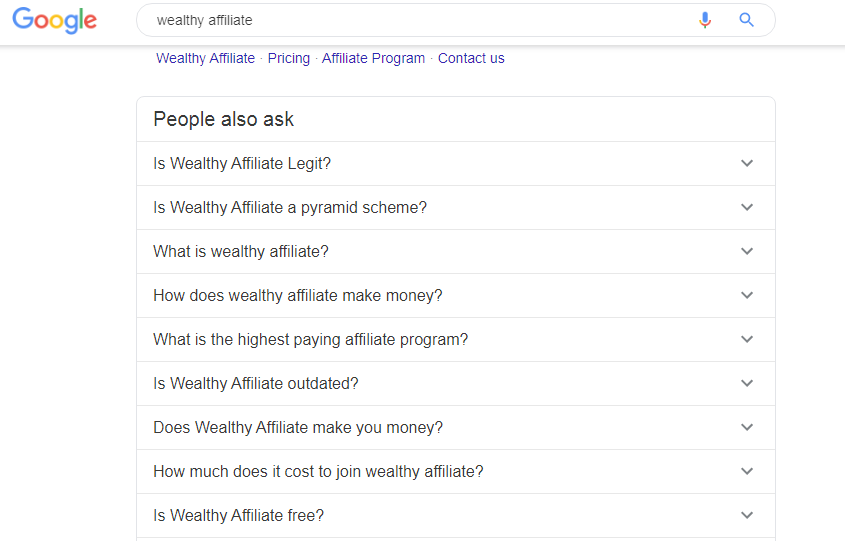
Or when I search for “Wealthy Affiliate Review” there’s another set of questions just waiting to be answered.
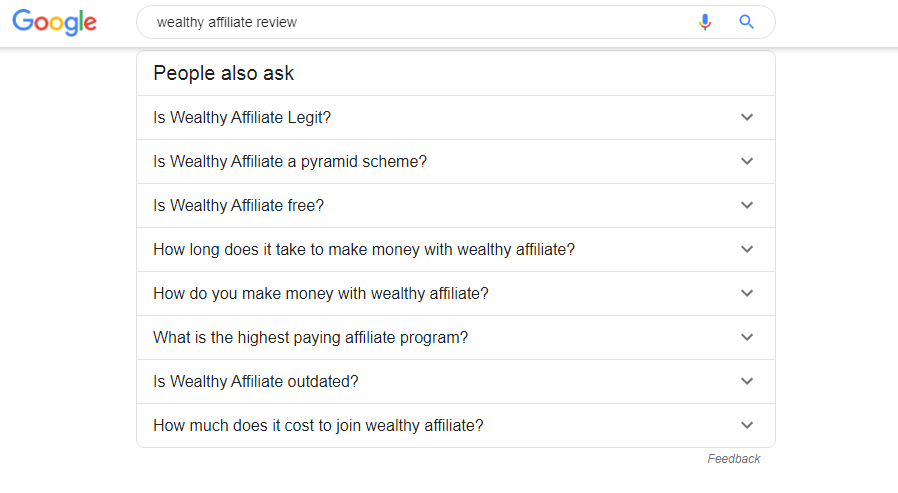
So, these PAA boxes appear on almost any search and I can quickly make a list of dozens of questions people ask perfect for answering in my FAQ page
In fact, that is exactly what I did.
#2- Use Answer the Public
This tool is a free SERP question extractor. This means it scrapes Google and other search engines for all questions people pose about X.
For example, here’s what I get when I search for “Israel Kamakawiwo’ole”
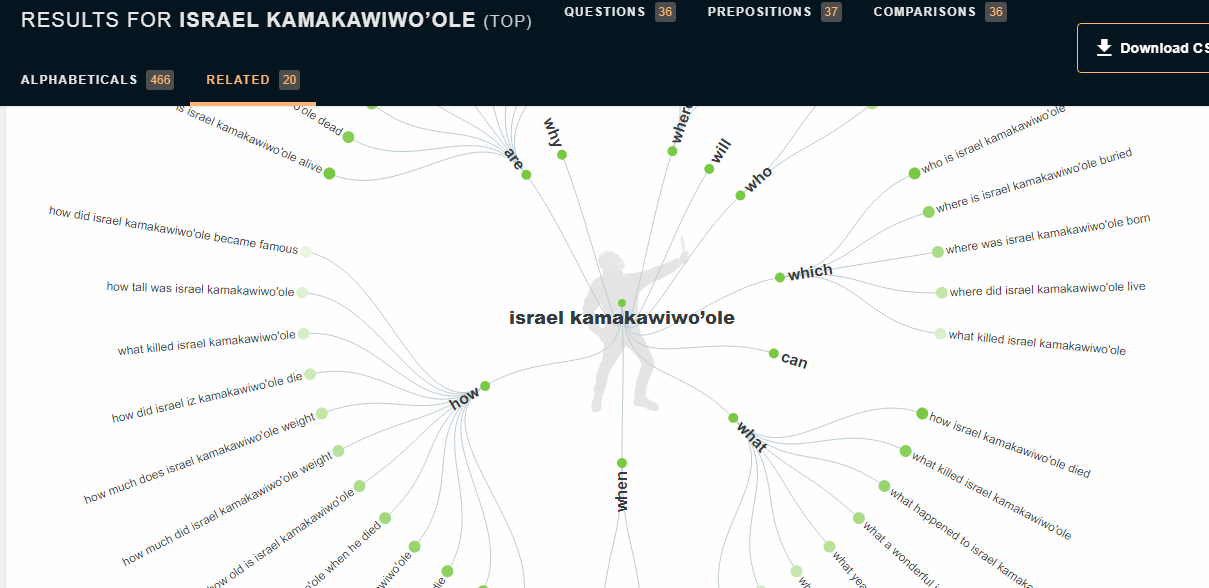
He had a gorgeous voice and here’ es a video as proof. Dare to contradict me?
[youtube https://www.youtube.com/watch?v=y5JicO2bKec]
Note: Not all questions Answer the Public finds will be a good fit for you. That’s ok. Take those that make sense to your post, and make sure you give your best answer.
How to Get FAQ Pages for Your Site (Free Method)?
You’re going to be using a free plugin called Arconix
So, within your WP dashboard go Plugins/Add New and install and activate the plugin.
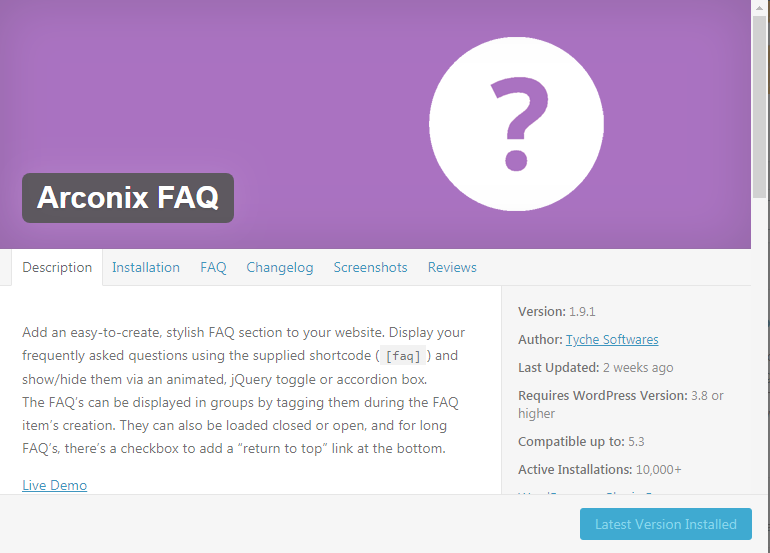
Next in your WordPress dashboard find the FAQ tab and go “new FAQ”. Then just fill in the content as you would with a normal post or page
Then on the right sidebar you will see some FAQ options:
- Returns to top link– I say NO if FAQ page has a small number of questions (less than 15). YES if there are many more or if your answers are very wordy.
- Load in open position- YES. Better for SEO (more on that below). NO if there are too many questions, or if FAQ section is attached to normal post or a page.
- FAQ shortcode- Very important as this is the code you will be copying and inserting it into the post.
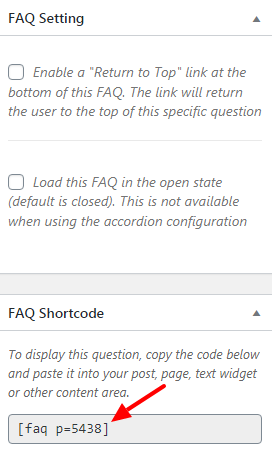
And that is it.
And for demonstration purposes, here’s how it looks online.
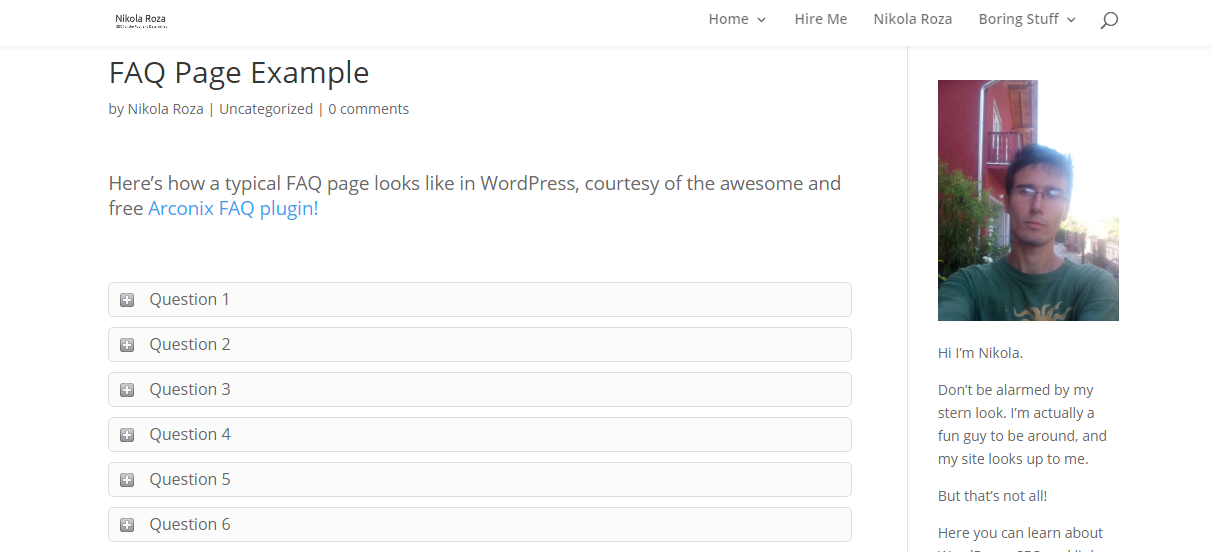
And here’s the same page in WordPress post editor.

Using FAQ Pages for SEO (3 Pro Tips)
#1- Load Your questions and answers open (and not behind accordions)
Arconix gives you the option to hide the questions behind pretty looking accordions (like in the image above). So they’d be closed until you click and open to read.
It’s classy I admit- but also bad for SEO.
Why?
Because content behind tabs and accordions is hidden content, and while Google can parse it just fine, they also give it lower value.
In other words, when Google sees hidden content they think it’s not so valuable so they rank it much lower than they normally would.
Note: this study from Dejan markeitng shows how Google treat the same content differently, depending on whether it’s hidden behind tabs or not.
I say don’t risk it and just keep your FAQ’s open. The only exception to this rule would be if you attach a large FAQ section to an already meaty article. Than it would make sense to hide them so the page loads faster and provides better UX.
For example this is a pretty lengthy article on Janice Wald’s blog and at the end there’s an FAQ page. Since the page is so meaty it would make sense ti hide the questions and answers under accordions. But in this case it’ ok to keep them open, because her FAQ section is pretty tiny (just 3 questions/answers).
#2- Beware of duplicate and thin content
One problem with Arconix FAQ plugin is that it crates separate pages for each FAQ page.
What I mean is, that if you want to have an FAQ page with 20 questions and answers you will need to create 20 different FAQ’s and paste their shortcodes inside the post. But then When Google comes by to index, it will index that page+20 individual FAQ’s.
Which means you will end up with 21 new pages in the index, 20 of which will be both thin and duplicate content.
This sets you up quite nicely for Google Panda site devaluation/suppression.
First time I used Arconix, I didn’t know that and I remember how confused I was when I noticed 30 new indexed pages, and all duplicate from my one FAQ page.
So what did I do?
Simple- I redirected FAQ’s to their mother page and let Google de-index them naturally (it took 3 months)
Here how to redirect the page
First, install the Redirection plugin:
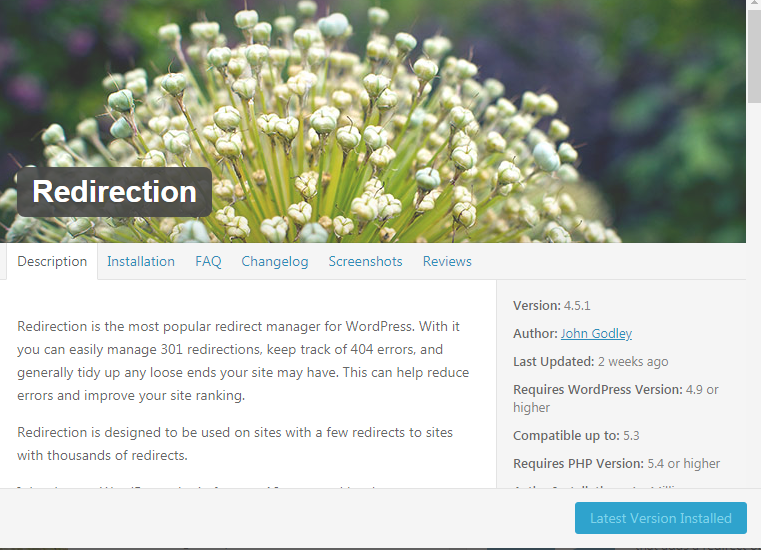
Then, in your WP dashboard go Tools/Redirect. Then just redirect FAQ url to FAQ page url.
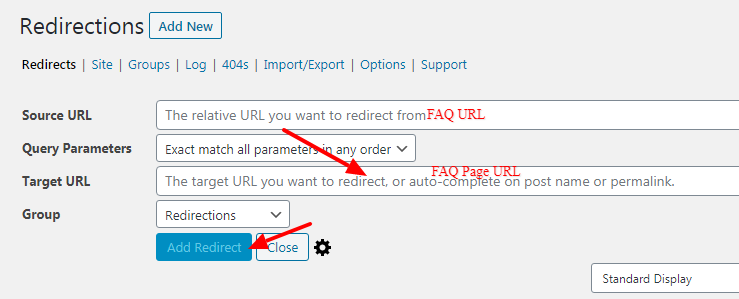
And that’s it. Repeat for every question and if you do it right away and don’t linger, it won’t take Google 3 months, but 3 days. Because less time they’re indexed; quicker they’ll be removed.
#3- Have a content table
Take a look at This FAQ page.
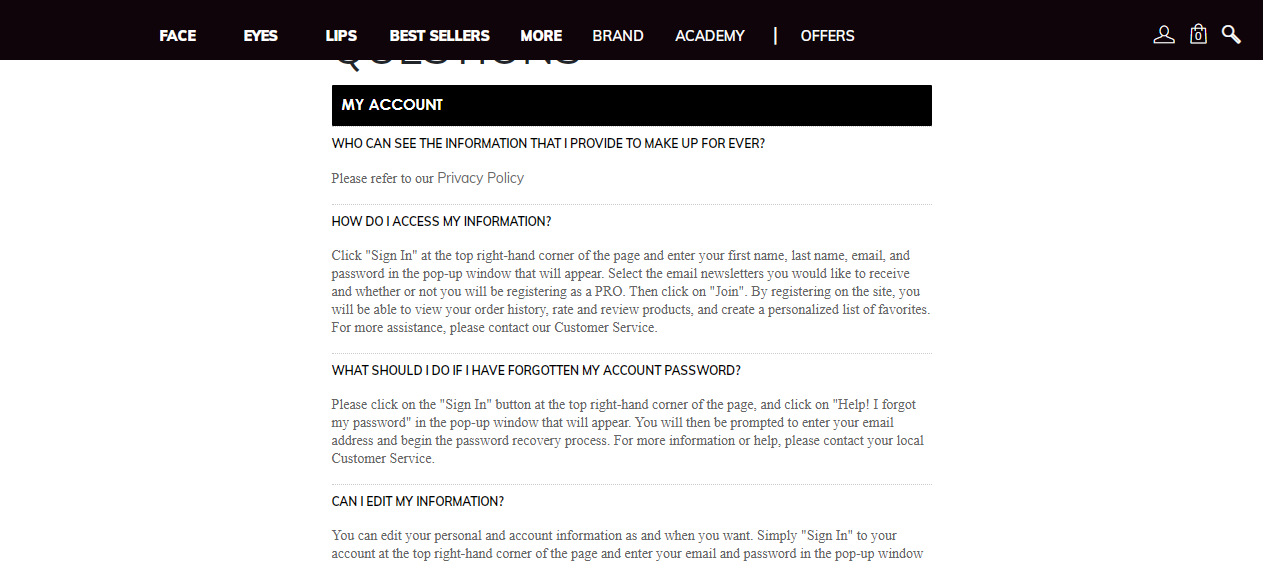
Notice something something strange and off-putting? The page is 5000 word thorough, yet it doesn’t have a content table at the start of the post.
It’s very difficult to navigate it and find what you want quickly.
It’s bad UX.
And now, take a look at the top of my FAQ page.
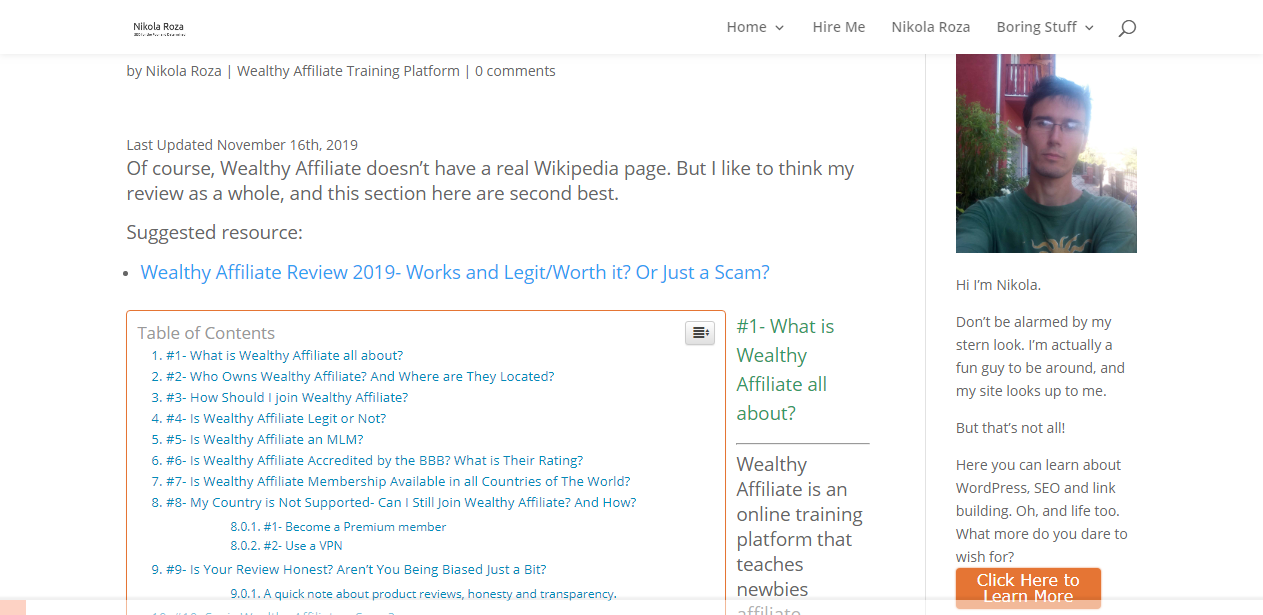
See that content table? It’s very helpful as folks can quickly jump to wherever they want to.
It’s good UX.
Note: I recommend this plugin for your TOC’s.
It’s:
- easy to use
- free
- regularly updated
Conclusion
FAQ pages
Use them! Or watch others use them and see:
- more SERPS exposure
- more traffic
- more clicks and sales
- more affiliate commissions
go to one place where you don’t want to see them- your competitor(s)
You can prevent that you know? FAQ page are no magic fix to your SEO and are no panacea for your site’s health; but they can be that one bandage that’ll put a permanent stopper to your traffic woes.
Ok, enough building up suspense. Get going! And let me know of your results.
Cheers!
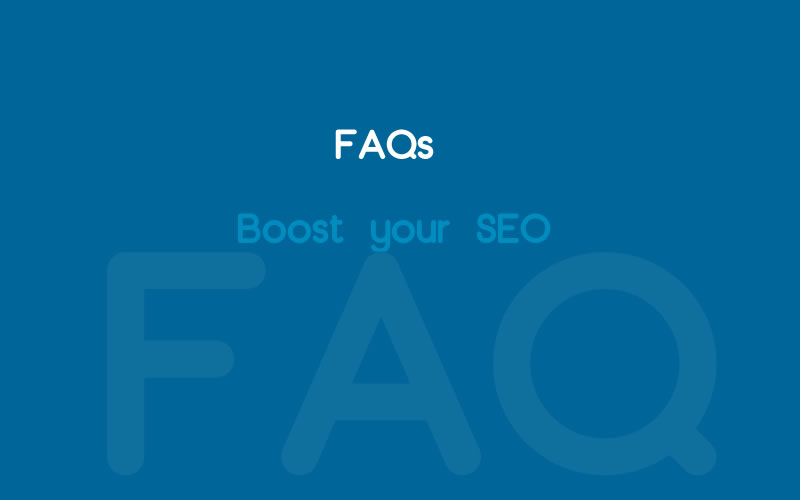
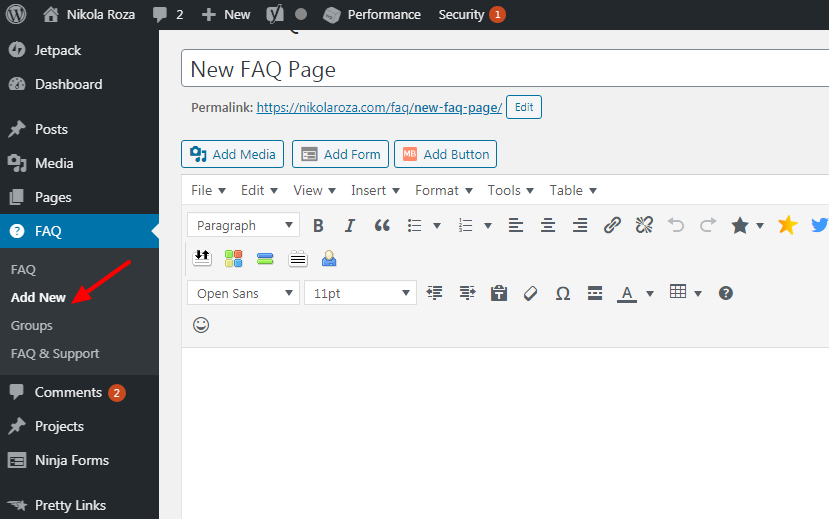
Comments are closed.